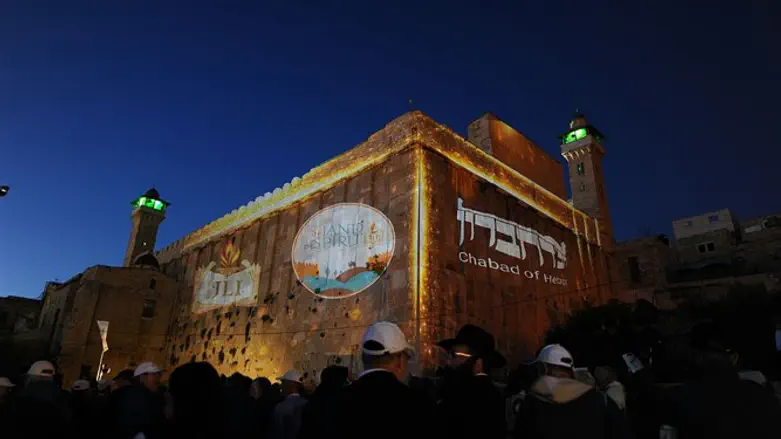
ABRAHAM: PRINCE OF GOD
Sarah's death left Abraham not only bereaved but also anxious to find a good enough burial place for her. His searches led him to Machpelah, the property of the Hittite people.
The negotiations that led to the purchase of Machpelah are indeed fascinating, especially because of the insight they give into ancient bargaining procedures.
Almost incidentally we are informed that the Hittites gave Abraham a title, Prince of God, "Nesi Elokim".
It is possible the phrase simply means a great or mighty prince. Biblical Hebrew has no superlative and uses phrases like "a mighty hunter unto the Lord", "a great city unto the Lord", etc.
But perhaps there is a case for the literal translation when it comes to Abraham. What made him great was not so much his affluence or power but his dignity, faith and righteousness.
It is a lesson for all of us to learn. After all, when the Talmud informs us of the questions put when we seek to enter the World to Come, it does not suggest that anyone will ask, "How much money did you make? How much property did you amass?" but "Were your dealings honourable? Did you give time to Torah? Did you have faith in salvation?"
Judaism gives due regard to material achievement, but its real concern is whether, like Abraham, we are people of noble character and faith.
MOURNING FOR A WOMAN OF WORTH
The Akedah, the subject we read about last week, narrates the binding of Isaac (Gen. 22). Immediately afterwards comes the death of Sarah (Gen.23). Our sidra begins by saying that Abraham mourned and lamented for her.
According to the rabbinic sages in the Midrash Tanchuma, the words the husband used were the "Eshet Chayil" which later became Chapter 31 of Mishlei and are now chanted at the beginning of Shabbat in praise of Jewish womanhood.
If we try to fit the words of Eshet Chayil into the life story of Sarah, we come across a series of difficulties. One is the verse, "She considers a field and buys it" (Prov. 31:16).
What field comes into the Abraham and Sarah story? If the reference is to the field which contains the cave of Machpelah, surely it was Abraham who bought it, not Sarah, and the purchase negotiations are spelled out in today’s reading (Gen. 23).
Maybe the explanation is that Sarah was forward-thinking and whilst she was alive she had set her eyes on Machpelah as her eventual burying-place. Ever the practical woman, she chose the field but left Abraham to conduct the formal negotiations.
Can we therefore endorse Mishlei and say it was she who bought it? Probably yes, in the sense that she was the one who paved the way.
127
Sarah was 127 when she died (Gen. 23:1). According to the Midrash this was a perfect age to be (Gen. Rabbah).
Sarah died with the beauty of a young woman and the sinlessness of a child.
These are the criteria by which to assess a human being – beauty and dignity, righteousness and morality.
If only we could all merit that kind of judgment, regardless of our age in terms of years!
LOVE STORY
The parashah ends with Isaac finding love, thanks to Abraham’s messenger Eliezer.
Sent to find Isaac a wife, Eliezer comes back with Rebekah. Isaac takes her to his mother Sarah’s tent: “She became his wife, and he loved her” (Gen. 23:67).
Love figures frequently in the Torah. Abraham loved Isaac; we are told to love our fellow as ourselves; we must love God with our heart, soul and might.
The root of the Hebrew word for love is "a-h-v". Some interpreters link it with "h-v" – "to give". In this sense, love is more than feeling wonderful, more than enjoying being with the other person – even if the other "person" is God Himself.
Love is giving. It is partly, "What you give me can’t be put in words" – and also, "Because I love you, I want to give you all that I have and all that I am".
![]()
ReplyReply allForward
